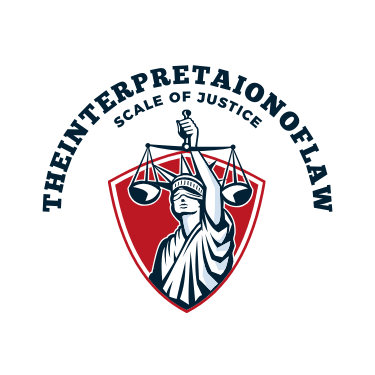Unpaid tickets. It’s a minor inconvenience we’ve all probably encountered at some point. But what happens when that little slip of paper tucked under your windshield wiper gets “lost,” or you forget to make the payment? It may seem insignificant, but watch out! Something as mundane as an unpaid parking ticket can turn into a major headache. Welcome to the world of warrants! Curious about how long it takes for that neglected ticket to morph into a warrant? Stick around as we delve deep into this surprisingly intriguing topic.
What is a Warrant For Traffic Tickets?
A warrant for traffic tickets is a legal document that authorizes law enforcement officers to arrest and bring an individual into court for failure to appear or pay fines related to traffic violations. Once a warrant is issued, it’s entered into a statewide police database, making it possible for any officer in the state to make an arrest.
How Long Does It Take For a Ticket?
A warrant is an official legal document that gives a law enforcement officer the authority to arrest or detain someone. A judge or magistrate typically issues it, and it can be obtained for various reasons, such as suspected criminal activity or failure to comply with a court order. In this case, we are specifically discussing warrants issued for unpaid tickets.
How Does an Unpaid Ticket Turn Into a Warrant?
When you receive a ticket, whether it’s for a traffic violation or a parking violation, there is typically a due date for payment. If that due date passes and the ticket remains unpaid, the issuing agency (such as the police or city government) may send you reminders and notices to pay. However, if these attempts to collect payment are unsuccessful, the agency may choose to file a warrant for your arrest.
How Long Before An Unpaid Ticket Becomes a Warrant?
Have you ever received a ticket for a traffic violation and need to remember to pay it? While it may not seem like a big deal initially, failing to pay your fine can quickly escalate into a warrant for your arrest.
If you don’t pay your ticket and fail to appear in court on the specified date, you can expect a bench warrant to be issued within 24 hours. Not only will you face the original fine, but you may also be charged with “Failure to Appear”. To avoid the potential consequences, it’s always best to pay your fines promptly and show up to your court date on time.
What Happens if you don’t pay Traffic Tickets?
If you fail to pay your traffic tickets, the consequences can vary depending on the severity of the violation and your state’s laws. Sometimes, the issuing agency may send your unpaid ticket to collections, which can negatively impact your credit score. Failure to pay traffic tickets can also result in a suspended driver’s license or even a warrant for your arrest.
It’s important to take care of your tickets promptly to avoid these potential consequences.
What happens if you don’t show up to court for a ticket?
Ignoring a court date for a ticket can lead to serious consequences. As mentioned earlier, failing to appear in court can result in a bench warrant being issued for your arrest. This means that law enforcement officers could potentially arrest and bring you into court.
If you do not attend court, the judge may rule against you by default and order additional fines or penalties. It’s always best to attend your court date, even if you plan on contesting the ticket.
A bench warrant for unpaid fines means a warrant has been issued for your arrest due to unpaid fines or failure to appear in court for a traffic violation. This can result in serious consequences, so taking care of unpaid tickets as soon as possible is important.
Judges commonly issue bench warrants for non-appearance in court, as well as for probation violations, unpaid child support, or overdue fines. Individuals discovering an outstanding bench warrant can resolve the matter by promptly contacting the court and surrendering themselves.
FAQs
Can I just pay my ticket and not go to court Texas?
In some cases, yes. You may be able to pay the fine for minor traffic violations without appearing in court. However, if you wish to contest the ticket or are required to appear in court by the issuing agency, you must show up on your specified date.
If i pay my ticket will my warrant go away?
It depends on the specific circumstances and laws in your state. In some cases, paying the ticket may resolve the warrant. However, if the warrant has already been issued and entered into a statewide database, it may go away after some time. It’s always best to contact the issuing agency or a lawyer for guidance on resolving a warrant.
Can you get a warrant for a speeding ticket?
Yes, getting a warrant for a speeding ticket is possible if you fail to pay the fine or appear in court. It’s important to take care of all traffic violations promptly to avoid potential consequences such as warrants being issued. So, it’s always best to follow traffic laws and take care of any tickets promptly. Remember, even minor offenses can quickly escalate into a warrant for your arrest. Stay responsible and stay on top of those ticket payments to avoid any unwanted surprises in the future!
Additional Tips
- Always read the fine print on your tickets and make a note of due dates for payment or court appearances.
- If you cannot pay your fine by the specified date, contact the issuing agency to discuss alternative options.
- Keep track of any paperwork or correspondence related to your ticket in case you need it for future reference.
- If you plan on contesting a ticket, seek legal advice before your court date to ensure the best possible outcome.
Conclusion
Warrants for unpaid tickets can have serious consequences, including potential arrest and additional fines or penalties. It’s important to take traffic tickets seriously and handle them responsibly by paying fines promptly and appearing in court on the specified date.
Additionally, ignoring a court date for a ticket can result in a warrant being issued for your arrest, so it’s important to stay informed and responsible.
Remember, taking care of your tickets is always the best course of action to avoid any potential legal troubles. So, next time you receive a traffic ticket, don’t ignore it – take care of it promptly and stay on the right side of the law.
References
- https://www.dmv.org/articles/what-happens-if-you-dont-pay-traffic-tickets/
- https://www.nolo.com/legal-encyclopedia/what-happens-if-i-dont-show-up-court-my-ticket.html
- https://dmv.ny.gov/tickets/pay-or-dispute-parking-violation/can-i-get-warrant-my-arrest-parking-violation
- https://www.txdot.gov/driver/license/surcharge.html#fines
- https://legalbeagle.com/6724960-can-warrant-issued-moving-violation.html

Carter Wilson is a licensed lawyer with over 10 years of experience in various legal fields. He is passionate about making law accessible to the general public and helping individuals navigate through complex legal matters.

